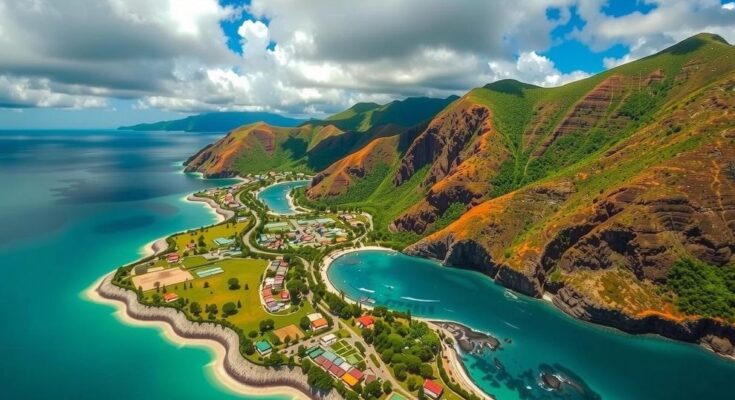Equatorial Guinea is the only Spanish-speaking country in Africa, with a challenging history under authoritarian rule and a reliance on oil exports that impacts its economy. Despite being one of the wealthiest nations by GDP per capita, wealth inequality persists. It also grapples with political instability and a small population, making it one of Africa’s least populated countries. Equatorial Guinea exemplifies the contrast of wealth and governance issues in contemporary Africa.
Equatorial Guinea, officially known as the Republic of Equatorial Guinea, is a small yet significant nation located on the western coast of Central Africa. It is noteworthy for being the only African country where Spanish is an official language, a legacy of its historical ties to Spain. While its capital, Malabo, is situated on Bioko Island, the country also boasts a mainland region, Río Muni. Despite its vast oil wealth contributing to a high GDP per capita previously, the economy has faced challenges, reflecting uneven wealth distribution among its citizens. Furthermore, the nation has been under the long-term, authoritarian rule of President Teodoro Obiang Nguema Mbasogo since 1979, marking a political history characterized by strict control and limited freedom. In this article, we will explore five key facts about Equatorial Guinea that illuminate its unique position in Africa.
Equatorial Guinea’s distinctive characteristics are shaped by its colonial history and political climate. Spanish colonization has resulted in the current linguistic landscape, where Spanish prevails alongside various indigenous languages. Economically, the nation benefited from significant oil reserves, positioning it among wealthier African states until recent economic downturns. Politically, it has remained stable under a single-party system, creating a climate of censorship and oppression for dissenting voices. These elements contribute to Equatorial Guinea’s identity, offering insights into its development and challenges.
Equatorial Guinea presents a complex narrative marked by its unique linguistic heritage, economic potential, and political challenges. The fact that it is the sole Spanish-speaking country in Africa distinguishes it culturally, while its oil-dependent economy illustrates the precarious balance between wealth and poverty in the nation. Under the continued leadership of President Obiang, Equatorial Guinea’s future hinges on managing its natural resources wisely and fostering a more inclusive society that benefits all its citizens.
Original Source: www.pulse.ng




